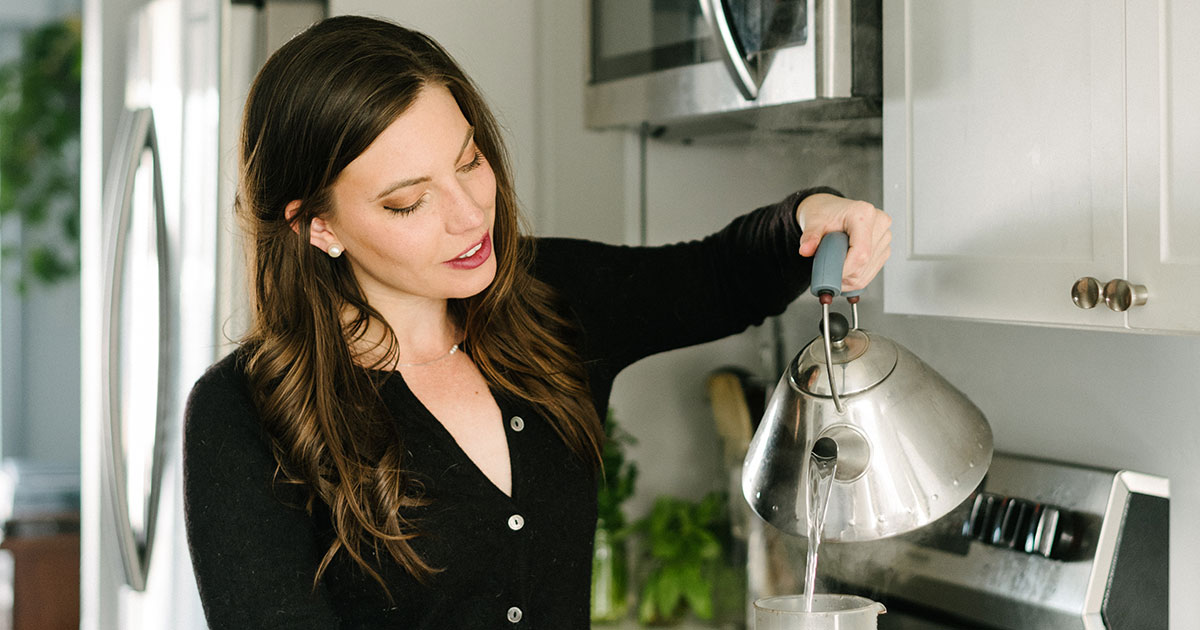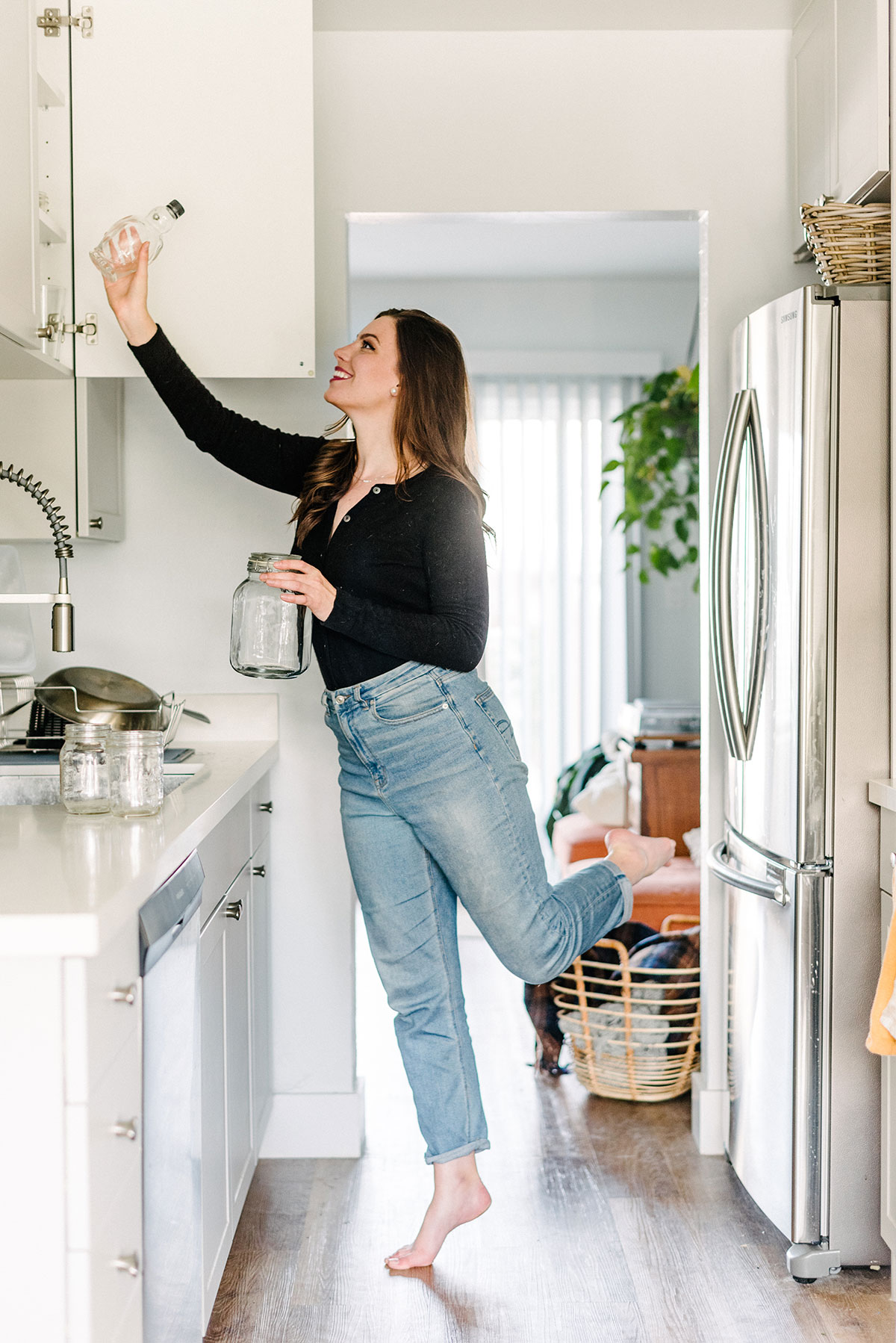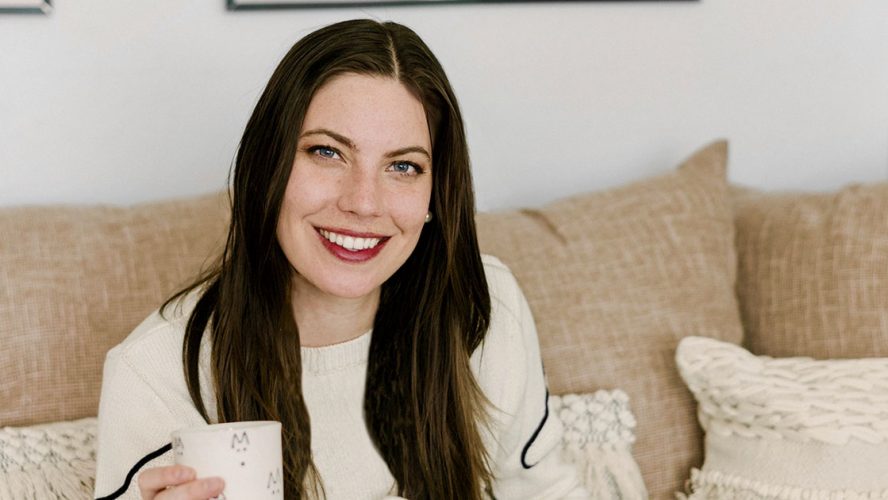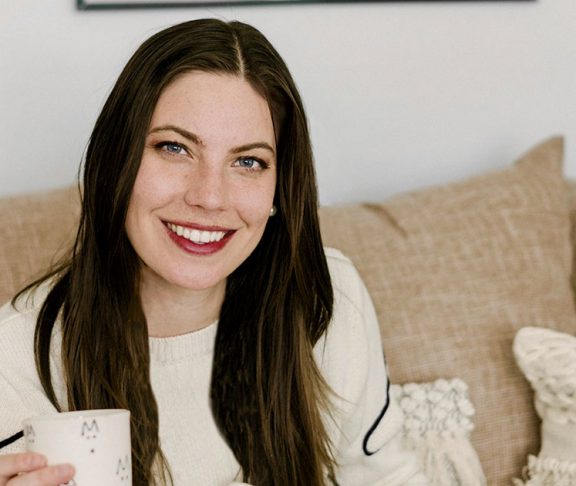Kathryn Kellogg is the founder of Going Zero Waste, a spokesperson for plastic-free living for National Geographic, Chief Sustainability Officer at the One Movement, and author of 101 Ways to Go Zero Waste In a Q&A, the sustainability activist and influencer explains how small first steps can make a big environmental impact.
What inspired you to start and got your blog going zero waste?
It might be surprising, but didn’t start going zero waste because I loved the planet. I actually started practicing many of these habits out of financial necessity and for health reasons. I had a pretty major hormonal imbalance in college which led to a lot of pain, doctor visits, full blown cystic acne, mood swings, and mental health issues. So, I started reducing my exposure to endocrine disruptors which are found in a lot of products we come into daily contact with.
One of my favorite books on this topic is Estrogeneration, which explores the link between synthetic estrogens with our bodies and nature. There’s not a lot of regulation or testing on many of the products we buy like plastic, beauty products, and cleaning products just to name a few, so I started being very mindful of what I brought into my home by reducing plastic, eating more plant based, and DIYing a lot of my cleaning products. Making these changes coupled with switching out disposable products with reusable ones (cloth towels instead of paper towels, etc.) saved me a lot of money.

It all clicked for me when I moved to California that the changes I was making for my personal health weren’t only better for me, they were also better for the planet. I started my blog goingzerowaste.com because I wanted people to know they could save money, be healthier, and be more eco-friendly. It seemed like a no-brainer and I wanted to help people make this transition easy and fun.
How have you seen the world turn toward a more sustainable future in the past few years?
I definitely think there’s been a global shift and an awakening to the plastic crisis in the last five years. However, I think we’ve been set back quite a bit with a lot of COVID restrictions. One the things I am heartened by is the return to self-sufficiency during lockdown. A lot of people started creating gardens or making their own bread and found new hobbies that reduce waste and rely less on our industrial food systems. I really hope that people will continue these hobbies and that we’ll continue to see waste-reducing measures go forward after COVID restrictions are lifted. Of course, I am also very excited about the United States rejoining the Paris climate accord and much of the sustainability legislation currently in the House and Senate.
In your book, 101 Ways to Go Zero Waste, what are some first tips for people trying to make the change to a zero waste lifestyle?
One of the first tips that I always give people is to do a waste audit. Trash is very individual and what I throw away and what you throw away maybe two very different things. One of the reasons I like to start with trash is because it’s so incredibly tangible. It can be very difficult to see or feel greenhouse gas emissions, but trash is a great place to start Because you can see an immediate reduction and feel the impacts and benefits rather quickly.

The next best thing you can do is just simply buy less. One of my favorite tips is to put a 30-day buy-ban on any nonessential purchases. So if you see something that you like, tell yourself you can buy it, you just have to wait 30 days. What you’ll find is that many times you don’t actually really want that item. You don’t need it, you have something you can borrow from a friend or family member, or something else that can make do.
What are some lifestyle changes people can make to live more sustainably every day?
Eat more plants. Avoid food waste. Compost.
Eating fewer animal products and more plants, avoiding food waste, and composting, are some simple steps that make the biggest impact. We waste of the 40 percent of our food in the United States. Making food waste, if it were a country, the third largest producer of greenhouse gases behind the United States and China.
A few ways to reduce food waste is to buy less, make sure you’re storing your produce properly so it will have a maximum longevity, and actually focus on eating what’s in your fridge instead of letting it rot in the crisper drawer. The other way to have a major impact on food waste is composting. Many people think food scraps will break down in landfills, but they won’t. Landfills are designed for storage not decomposition, and the organic matter trapped in landfills releases methane, which is, on average, 30 times more powerful than your average greenhouse gas.
What are some of your favorite go-to sustainable packaged products?
Some of my favorite swaps have been ditching paper towels, getting a bidet attachment for my toilet, switching to reusable period products like menstrual cups and Thinx period panties, And using a French press to brew my coffee instead of a pod machine.

